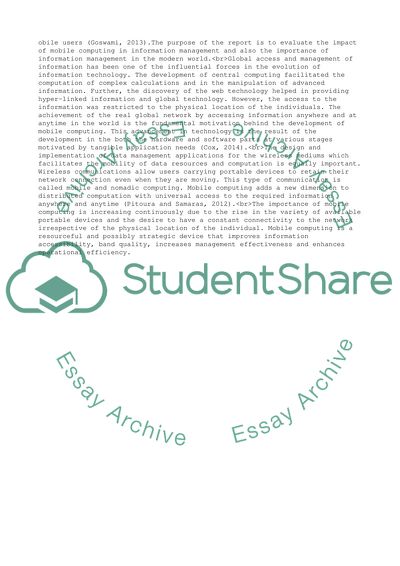Cite this document
(“Information management Coursework Example | Topics and Well Written Essays - 1500 words - 2”, n.d.)
Information management Coursework Example | Topics and Well Written Essays - 1500 words - 2. Retrieved from https://studentshare.org/management/1698935-information-management
Information management Coursework Example | Topics and Well Written Essays - 1500 words - 2. Retrieved from https://studentshare.org/management/1698935-information-management
(Information Management Coursework Example | Topics and Well Written Essays - 1500 Words - 2)
Information Management Coursework Example | Topics and Well Written Essays - 1500 Words - 2. https://studentshare.org/management/1698935-information-management.
Information Management Coursework Example | Topics and Well Written Essays - 1500 Words - 2. https://studentshare.org/management/1698935-information-management.
“Information Management Coursework Example | Topics and Well Written Essays - 1500 Words - 2”, n.d. https://studentshare.org/management/1698935-information-management.


